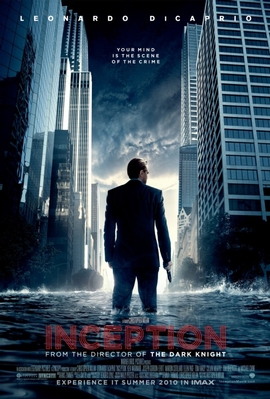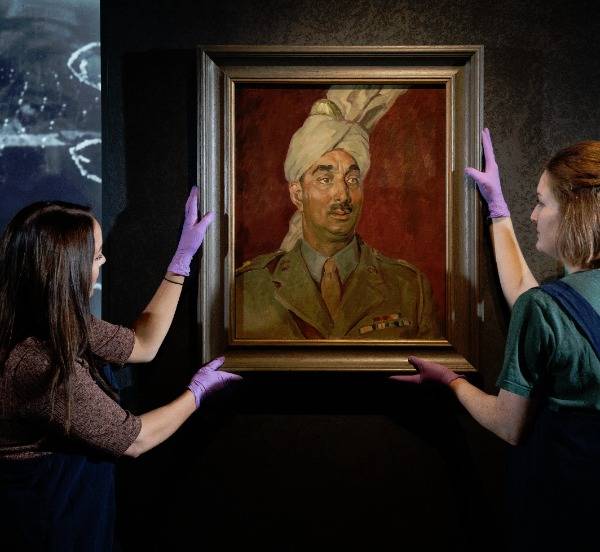 For a movie that constantly plays with the viewer’s perceptions of reality, it’s a mercy that Christopher Nolan’s Inception doesn’t start to explore the sci-fi possibilities of déjà vu. For, at the risk of becoming even more complicated, Inception might as well be titled Haven’t We Seen This Before? And no, that is not reference to the numerous Bond and Bourne movies that Nolan channels. Rather, the film’s set up seems all too similar to Shutter Island, which we all had to sit through earlier in the year. Yet again, it’s Leo DiCaprio looking like a strained weasel, inhabiting some sort of dream space through which he is stalked by his dead-but-homicidal-wife. Along for the ride in this movie are Ellen Page, Joseph Gordon-Levitt, Cillian Murphy and the scene-stealing Tom Hardy as Eames, a kind of macho-camp thug. A team of subconscious-invading secret agents are sent into Cillian Murphy’s dreams in order to plant an idea that will result in the dissolution of a massive energy company. This is all the set-up with which we are provided before Nolan creates a dream-world filled with armed thugs and runaway trains.
For a movie that constantly plays with the viewer’s perceptions of reality, it’s a mercy that Christopher Nolan’s Inception doesn’t start to explore the sci-fi possibilities of déjà vu. For, at the risk of becoming even more complicated, Inception might as well be titled Haven’t We Seen This Before? And no, that is not reference to the numerous Bond and Bourne movies that Nolan channels. Rather, the film’s set up seems all too similar to Shutter Island, which we all had to sit through earlier in the year. Yet again, it’s Leo DiCaprio looking like a strained weasel, inhabiting some sort of dream space through which he is stalked by his dead-but-homicidal-wife. Along for the ride in this movie are Ellen Page, Joseph Gordon-Levitt, Cillian Murphy and the scene-stealing Tom Hardy as Eames, a kind of macho-camp thug. A team of subconscious-invading secret agents are sent into Cillian Murphy’s dreams in order to plant an idea that will result in the dissolution of a massive energy company. This is all the set-up with which we are provided before Nolan creates a dream-world filled with armed thugs and runaway trains.
And it is this lack of exposition that is one of Inception’s greatest strengths; here is a movie that respects the intelligence of an audience, and realises the breakneck speed at which the viewer can inhale concepts, images, movement and plot points. Good or bad, Inception is the film that the MTV generation has been in training to watch ever since it switched on the telly. This hitherto unseen rapidity perhaps explains the difficulty with which many have tried to explain Inception. We’ve had comparisons to everything from Kubrick (against which Nolan’s movie stands up remarkably well in that it is – thankfully – totally unlike Kubrick) to The Matrix. I imagine that Inception will fare rather better than that now ropey-looking blockbuster, as many of Nolan’s stunts were performed in-camera, rather than engineered with rapidly aging special effects.
As any viewer will quickly discover with Inception, however, it’s not all that simple. Here is an action movie that may have been scripted by Paul Auster – a meta-blockbuster that crams in layer upon layer of explosion and gunfire. The problem is that these individual layers do not stand up well under scrutiny. There’s a Manhattan car chase, a snowy spying trip. But these are nothing that we haven’t seen before. In The Bourne Supremacy, The Bourne Ultimatum and Casino Royale there was a genuine feeling of change in the action genre, even in the smallest details of a sequence (parkour pursuit, or suffocation by rolled-up-magazine). These movies placed Hollywood stunts in a context of the mundane, the unremarkable. As much as the big ideas work in Inception, the nitty-gritty (as much as firing a sawn-off shotgun through the window of a travelling van can be nitty-gritty) is a little uninspired. Great details abound elsewhere, such as Nolan’s observations on the intrusion of reality into dream-space (gravity in the real world translates into altered physics in the dream) but these make the faults elsewhere even harder to stomach.
Then there’s the ham-fisted characters. Ellen Page, for example, is an architect who designs mazes. She is called Ariadne. The credits don’t list a GSCE English Literature student as a co-writer, but I guess that’s Hollywood for you – always stiffing the little guy. A more serious problem than ridiculous names, however, is Leo’s plight. He’s doing this last dream-espionage job as a way of getting back to his kids. And these are kids from a John Lewis catalogue – horrible blonde hair, beady blue eyes, giggling, laughing. Regardless of a potential (read: inevitable) plot twist at the end of the film, there is no way that we can be expected to care for these gremlins. And that’s a real problem – in all the best blockbusters we have to love our heroes for their adventures to mean something, whether they’re web-swinging across the New York skyline or cracking whips in the Egyptian desert. And Inception’s Leonardo simply ain’t lovable. The New Yorker’s David Denby called Inception a film with humanist concerns. To some extent this rings true – the whole crux of the movie is a question of how we perceive our surroundings, and whether or not we are in control of them. Still, for a film of ostensibly humanist interests, Inception is remarkably inhuman.

